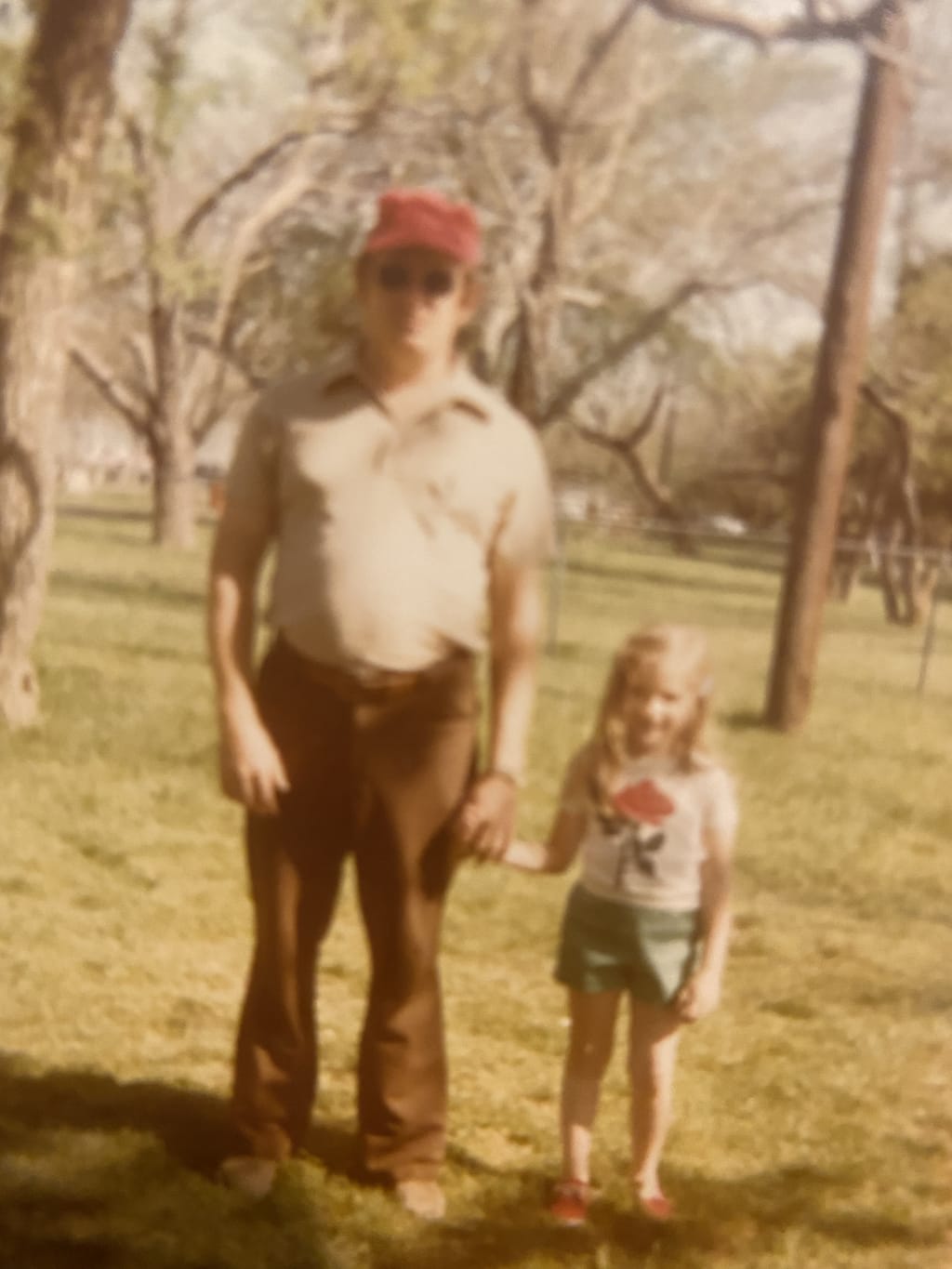Dad and the Spectrum
Autism and Fathers and Answers

“Mrs. Stogner, is there any history in your family of behavioral disorders or anything else that you might want to include?” The doctor looked up at me and waited.
My then-husband cocked his head at me and asked, “What about your dad? Wasn’t he kind of weird?”
It was 2010 and we were sitting in a psychiatrist’s office, answering questions and filling out paperwork for a re-evaluation of our third child who had been previously diagnosed with autism. In case you didn’t know, behavioral and psychiatric evals are intensive, especially when children are involved. They require observations, mounds of paperwork to be filled out and loads of questions to be answered.
“Not really,” I said. “I mean, he would make odd noises sometimes, and mix up his words. He was really anti-social…” I trailed off and the doctor laughed.
“Well honey, that’s significant,” she chortled, writing some notes down on a pad. And that was when my brain started spinning.
My dad was always kind of an enigma. He was wicked smart. I always knew this, even growing up. He was always putting stuff together and taking it apart. He could do calculus in his head and used that ability in his profession as an electrical engineer. He became short-tempered with me when I couldn’t grasp algebra right away in the 7th grade. He would come home from work, crash in his easy chair and hide behind a newspaper while the tv was on. If you asked him a question, you got one of two answers: “Well” or “huh”. Sometimes, he did give the cop-out answer of “Go ask your mother” but most of the time, it was the first two.
My dad didn’t like being around people. Shallow conversation and inane social niceties eluded him, and so he avoided it all like the plague. On Saturdays and weeknights if he puttered around the house, he would drum on everything: tables and other surfaces, or his increasingly rounded stomach. He enjoyed acting silly around me and my brother, often mixing up his words. “Sleeping beauty” became “Beeping Sleuty” and so forth.
But with all this he was almost unapproachable. It was impossible for me, growing into adulthood, to go to him with any kind of problem or concern. He was remote and difficult to communicate with. And my mother was frustrated with him. I remember as a child hearing her tell stories about parties she used to have at her house and friends she would hang out with, and I always wondered what happened. Why did she marry my dad, who was the polar opposite of the lifestyle she described? She claimed he went along with it all until they got married and then put a stop to it. Perhaps that’s what happened. Or perhaps, like many people in love, she made him into what she wanted or needed him to be, in her head. Either way, their discord and discomfort grew into a huge, silent, unfordable chasm that resulted in their divorce my first year of college.
I was angry at him for a long time. In my mind he was the monster, he left my mother, and he was the cause of her dissatisfaction for many years. I built a lot of bad feelings toward my father because of this. He was flawed, he was broken, he was bad, he could have done better. He was the asshole I could never talk to and the neglectful prick who couldn’t deign to communicate with my own mother.
It never occurred to me that he couldn’t communicate. It never occurred to me that he might have felt depressed, or lost, because he had a disorder that at the time, no one understood. It never occurred to me that the problem wasn’t him at all, but the lack of a diagnosis for the spectrum he lived on.
We live in a world now that is full of awareness of so many issues. And if awareness is lacking, there is going to be a group out there that pushes it. Name an issue, there is an organization out there for, or against. My dad didn’t have that luxury. He was born in 1949, and shortly after that autism was called childhood schizophrenia and blamed on “refrigerator mothers”, or mothers who were cold and lacking in regular maternal instinct (thank you, Bruce Bettelheim). It wasn’t until 1980 that autism received a separate diagnosis as pervasive developmental disorder (PDD) and later in the 90’s the actual term “autism” would make its debut in the DSM. All of this is fact. Look it up. My point is that I never understood my dad at all, until that moment in that doctor’s office. We were there for a re-evaluation of my own son. And we got that. But that doctor gave me something else very valuable, and that was a deeper, greater understanding of my own father. As I read through all the questions I had to fill out and he came to mind on a great many of them, it all fell into place. The mixing of words. The social avoidance and lack of communication. The fidgeting and the vocal tics. The insanely brilliant mind and the inability to connect. Even the gut issues, which many people with autism suffer from. It all clicked, and I have spent many days since in the years after, trying to place myself in his shoes, wondering what it must have been like to work so hard for a family that didn’t comprehend what he needed, to live in a world that wasn’t built for him, to know something wasn’t working but to never understand what it was.
My father died 18 years ago from cancer of the bile duct. Before he died we did manage to become closer. We worked next door to each other in downtown Fort Worth for a brief time and had lunch together every day. On his deathbed he held my 3 month old son in his lap who would, six years later, shift restlessly in my lap while I filled out reams of paperwork so he could get services and help that he needed. Dad, if you’re reading this, I want you to know: I love you so much, and I see you now. I really, really see you, and I am aware.
About the Creator
Rachel Dee
I'm a nice, normal mom in a nice, normal town. I believe in magic, miracles, good triumphing over evil and the overall effectiveness of laughter, chocolate, and a good, reliable sword. I also teach Special Education. That's it's own magic.
Reader insights
Outstanding
Excellent work. Looking forward to reading more!
Top insights
Eye opening
Niche topic & fresh perspectives
Heartfelt and relatable
The story invoked strong personal emotions
Excellent storytelling
Original narrative & well developed characters
Compelling and original writing
Creative use of language & vocab
Easy to read and follow
Well-structured & engaging content
On-point and relevant
Writing reflected the title & theme








Comments (5)
I found this very touching, but also very connective. It brought to mind how many people I've known that I didn't understand and in its own way, made me think about how we operate every day sometimes not even thinking about what other people may be suffering through in silence. This was very well written!!
Absolutely heartfelt!! Wonderful writing and you did a great job connecting to the reader. I look forward to reading more of your work.
This is a really beautiful experience. I am sorry that he had to go through all of that but I’m glad that you were able to be a light to him in his last moments ❤️
You have a unique life perspective on a story not often told. I've never read about life on the spectrum as the child of an autistic parent -- very interesting.
This was beautifully written and sheds light on a lot of issues. Your dad would be so proud of you.